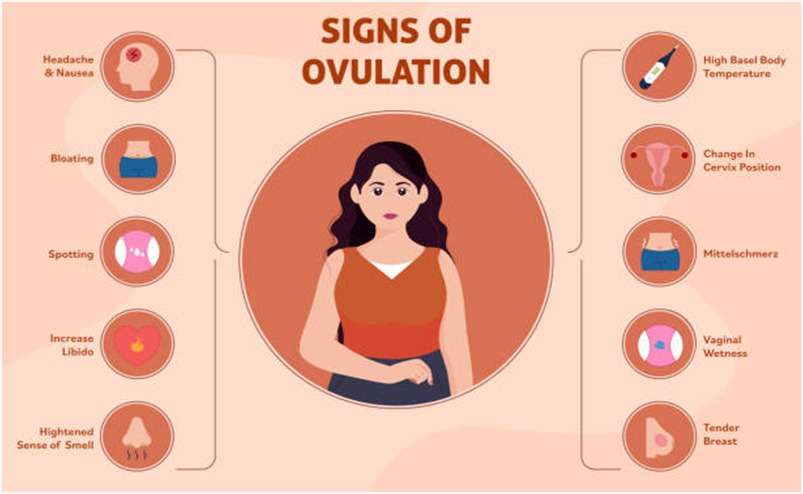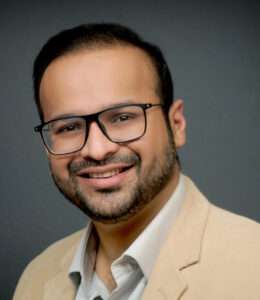The path to parenthood can be an emotional roller coaster, and for those who have experienced a failed IVF cycle, the journey might seem fraught with uncertainty. Yet, as the sun rises again, so does the chance for new beginnings. While disappointment might cast its shadow, there is a glimmer of hope in the form of the 1st ovulation after failed IVF. This pivotal moment opens the door to possibilities, guiding individuals towards alternative routes to parenthood.
When the clouds of uncertainty loom after a failed IVF cycle, seeking the expertise of a skilled fertility specialist becomes essential. At Saraogi IVF Hospital in Mumbai, Dr Mohit Saraogi, one of the renowned fertility specialists for his expertise in reproductive medicine, stands as a symbol of hope for those navigating the complex terrain of assisted conception. He aims to provide the most effective infertility treatment in Mumbai to achieve a successful pregnancy.
As one of the best IVF doctors in Mumbai, Dr. Mohit Saraogi believes in a personalized approach that addresses each patient’s unique needs and concerns. He recognizes that the journey following a failed IVF cycle is multifaceted – a blend of physical healing, emotional rejuvenation, and informed decision-making. Dr. Saraogi’s holistic approach ensures that every aspect of your well-being is considered as you embark on this new phase.
This blog aims to shed light on what happens to your body after a failed IVF cycle and the significance of the 1st ovulation after failed IVF.
So, first, let’s see,
What Happens to your Body after Failed IVF?

After a failed IVF cycle, your body undergoes physical and emotional changes. Physically, your hormone levels may take time to readjust. This causes a withdrawal bleed or a period similar to a regular menstrual cycle. Emotionally, coping with the disappointment and grief from the unsuccessful attempt is a crucial aspect of the post-IVF experience.
“Giving yourself time to heal physically and emotionally before considering the next steps in your fertility journey is essential”, advises Dr Mohit Saraogi, the medical chief of Saraogi Hospital, one of the best IVF centre in Mumbai.
“Remember, the journey is unique for each individual, and giving yourself the space to recover is an integral part of the process.”
When to Expect 1st Ovulation after Failed IVF?

The timing of the ovulation after failed IVF cycle can vary from person to person. On average, it may take a few weeks to a couple of months for your body to resume its natural menstrual cycle and for ovulation to occur. However, in some cases, early ovulation after a failed IVF attempt can occur. The exact timeline depends on factors such as the type of fertility medications used during IVF, your hormone levels, and your overall health.
It is essential to be patient during this period and to allow your body the time it needs to recover and regulate itself, especially when experiencing delayed ovulation after IVF cycle. Monitoring changes in your body’s signals and consulting with an expert IVF doctor can provide you with a better understanding of when to expect ovulation after failed IVF.
What Are the Success Rates of 1st Ovulation After Failed IVF?

The success rates of achieving pregnancy during the first ovulation after failed IVF attempt can be unpredictable. Studies suggest some individuals experience successful pregnancies naturally after failed IVF cycles. However, the success rates are generally lower compared to IVF procedures. The likelihood of conception during the first post-IVF ovulation depends on several factors, including the underlying causes of infertility, age, overall health, and reproductive history.
It is essential to consult with a fertility specialist to better understand your unique situation and the chances of achieving a successful pregnancy based on your medical history. While the road might be uncertain, each individual’s journey is distinct, and with the proper guidance and support, there is a potential for positive outcomes.
Chances of Natural Pregnancy after Failed IVF

The chances of a natural pregnancy after failed IVF cycle are present. However, they might be influenced by the underlying fertility issues that led to the need for IVF in the first place. While IVF is often pursued due to specific fertility challenges, some couples successfully conceive naturally after assisted fertility treatments. Factors such as age, overall health, the causes of infertility, and the individual’s response to IVF medications can all play a role in determining the likelihood of natural pregnancy after a failed IVF attempt.
It is essential to approach this phase with a sense of optimism tempered by realism. Consulting with a fertility specialist like Dr. Mohit Saraogi can provide valuable insights into your situation. Their expertise can help assess your chances of natural conception, allowing you to make informed decisions about the best path forward on your journey towards parenthood.
Now, let’s look at the,
Signs and Symptoms of First Ovulation after Failed IVF

The first ovulation after cancelled IVF cycle is a poignant juncture that offers renewed hope and opportunities. Dr. Mohit Saraogi’s expertise can guide you through this delicate transition, helping you comprehend the signs and symptoms accompanying this phase.
The signs and symptoms of ovulation after a failed IVF cycle are similar to those experienced during a regular menstrual cycle. These might include:
- Changes in cervical mucus consistency
- Mild pelvic discomfort or twinges
- Slight increase in basal body temperature
- Possible changes in libido
- Breast tenderness or sensitivity
- Heightened sense of smell or taste
These signs can vary widely among individuals and may not be experienced by everyone. Monitoring these changes in your body can provide insights into your post-IVF ovulation.
When to Seek Professional Guidance?
 You should seek professional guidance if you are considering trying to conceive naturally after a failed IVF cycle. A fertility specialist can help you understand your unique situation, provide insights into your chances of natural conception, and offer recommendations for optimizing your fertility during this time. They can also monitor your cycle and provide support as you navigate this next phase of your journey.
You should seek professional guidance if you are considering trying to conceive naturally after a failed IVF cycle. A fertility specialist can help you understand your unique situation, provide insights into your chances of natural conception, and offer recommendations for optimizing your fertility during this time. They can also monitor your cycle and provide support as you navigate this next phase of your journey.
If you experience irregular cycles, persistent pain, or any concerns during this phase, seeking medical attention is advisable. Dr. Mohit Saraogi’s expertise can help ensure that you are making informed decisions, optimizing your chances for a successful pregnancy, and addressing any potential complications or questions that may arise.
Conclusion
Facing a failed IVF cycle is undoubtedly a challenging experience. But it is important to remember that there are different paths forward. The first ovulation after failed IVF cycle symbolizes the body’s resilience and ability to continue striving for conception. Whether you pursue natural conception or explore further fertility treatments, seeking support from medical professionals and caring for your emotional well-being are essential components of this journey.
Dr. Mohit Saraogi, a leading IVF specialist in Mumbai, offers unwavering support and expert guidance throughout this journey. As you embrace the transformative power of hope, remember that the path to parenthood is diverse, and with the right expertise by your side, you are equipped to explore new horizons of possibility.
FAQs:
Q. How Does Your Cycle Change After Failed IVF?
A. After a failed IVF cycle, your cycle may be slightly disrupted due to the hormonal changes caused by the fertility medications. Your body might take a few cycles to return to its natural rhythm. This can result in variations in cycle length, ovulation timing, and menstrual flow.
Q. How Many Months After Failed IVF Can I Try Again?
A. The ideal timeframe for trying again after a failed IVF cycle can vary. Physically, giving your body at least one or two menstrual cycles to recover before attempting another IVF cycle or natural conception is recommended. Emotionally, taking the time to process your feelings and make the right decision is essential.

